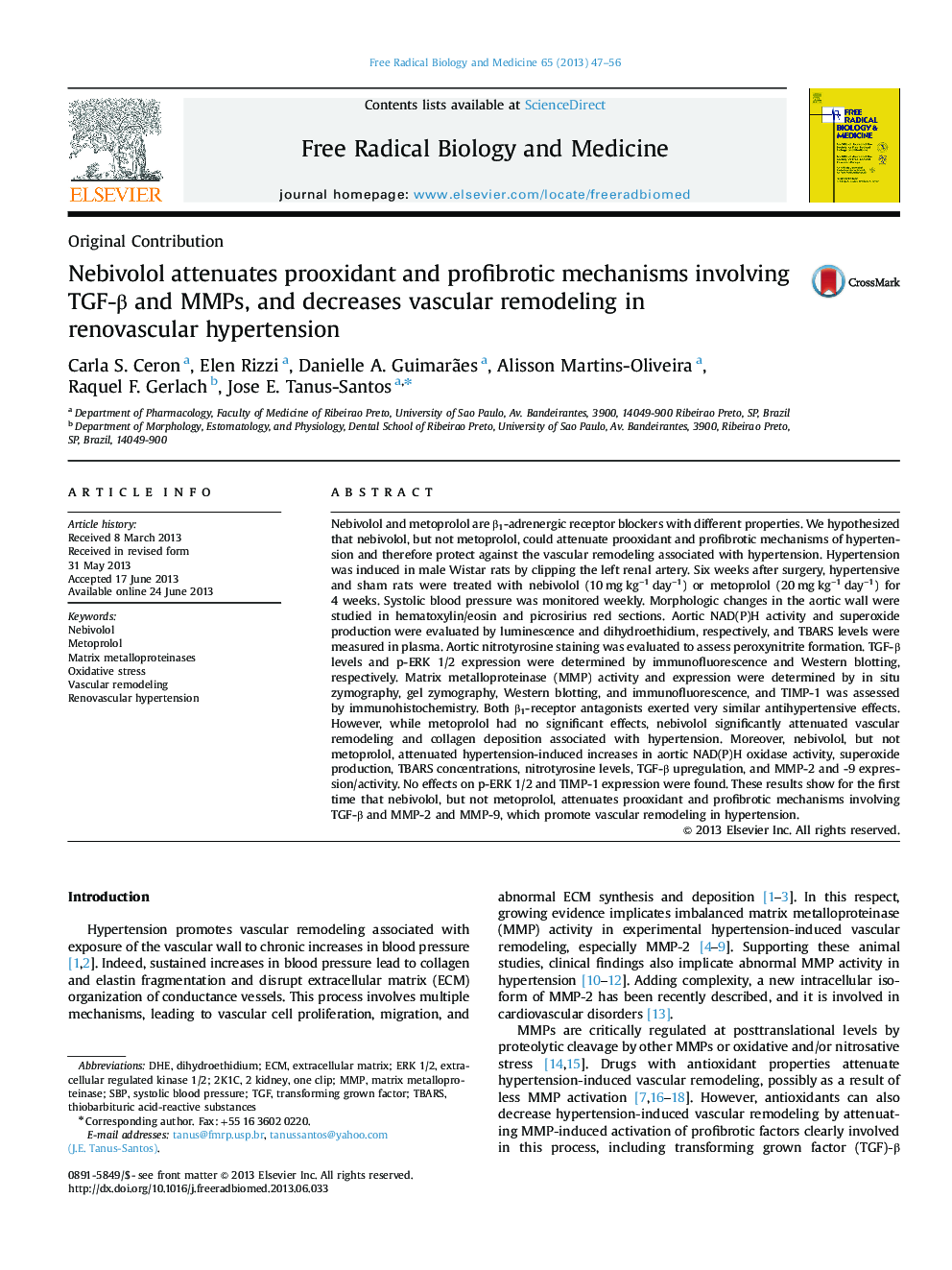| Article ID | Journal | Published Year | Pages | File Type |
|---|---|---|---|---|
| 8271087 | Free Radical Biology and Medicine | 2013 | 10 Pages |
Abstract
Nebivolol and metoprolol are β1-adrenergic receptor blockers with different properties. We hypothesized that nebivolol, but not metoprolol, could attenuate prooxidant and profibrotic mechanisms of hypertension and therefore protect against the vascular remodeling associated with hypertension. Hypertension was induced in male Wistar rats by clipping the left renal artery. Six weeks after surgery, hypertensive and sham rats were treated with nebivolol (10 mg kgâ1 dayâ1) or metoprolol (20 mg kgâ1 dayâ1) for 4 weeks. Systolic blood pressure was monitored weekly. Morphologic changes in the aortic wall were studied in hematoxylin/eosin and picrosirius red sections. Aortic NAD(P)H activity and superoxide production were evaluated by luminescence and dihydroethidium, respectively, and TBARS levels were measured in plasma. Aortic nitrotyrosine staining was evaluated to assess peroxynitrite formation. TGF-β levels and p-ERK 1/2 expression were determined by immunofluorescence and Western blotting, respectively. Matrix metalloproteinase (MMP) activity and expression were determined by in situ zymography, gel zymography, Western blotting, and immunofluorescence, and TIMP-1 was assessed by immunohistochemistry. Both β1-receptor antagonists exerted very similar antihypertensive effects. However, while metoprolol had no significant effects, nebivolol significantly attenuated vascular remodeling and collagen deposition associated with hypertension. Moreover, nebivolol, but not metoprolol, attenuated hypertension-induced increases in aortic NAD(P)H oxidase activity, superoxide production, TBARS concentrations, nitrotyrosine levels, TGF-β upregulation, and MMP-2 and -9 expression/activity. No effects on p-ERK 1/2 and TIMP-1 expression were found. These results show for the first time that nebivolol, but not metoprolol, attenuates prooxidant and profibrotic mechanisms involving TGF-β and MMP-2 and MMP-9, which promote vascular remodeling in hypertension.
Keywords
Related Topics
Life Sciences
Biochemistry, Genetics and Molecular Biology
Ageing
Authors
Carla S. Ceron, Elen Rizzi, Danielle A. Guimarães, Alisson Martins-Oliveira, Raquel F. Gerlach, Jose E. Tanus-Santos,
